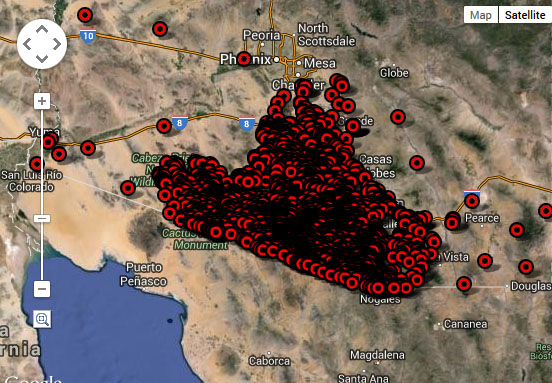One of the side debates in the discussion of the current border crisis has been over the comparison to the Katrina disaster. The comparison has now been made by politicians and pundits on both sides of the aisle. As I pointed out yesterday, even the reliably Obama-friendly Michael Tomasky found the comparison didn’t ring as hollow as he might have expected. For once he’s right.
There are some problems with the comparison of coure, starting with the fact that declaring something to be “Obama’s Katrina” has been used so many times before for other situations. The better comparison is probably the one suggested by Jon Gabriel in a piece titled “The Border Crisis Is Obama’s Mariel Boatlift.”
There may be reasons to prefer other comparisons, but one reason we should not discount the Katrina comparison is the fact that Katrina had a significant body count (over 1,800 people died). The truth is we don’t know how many children have died trying to make their way from Central America to our border but we know some have. More importantly, we know that number could continue to climb depending on the message we send in response to this crisis.
Last month the body of a Guatemalan boy, Gilberto Francisco Ramos Juarez, was found in the Texas brush. He was 11 years old and likely died from exposure. He is just one of thousands of migrants (adults and children) who make it across the border and die in the desert. Since 2001, Pima County, Arizona has tracked more than 2,100 migrant deaths (see map above). Most died from exposure but some were bludgeoned or shot, presumably by the coyotes they were traveling with. The map and details on each individual death is available here.
And that’s just the people who die on our side of the border. Remember these kids are coming from El Salvador and Honduras. In March, 12-year-old Jocelyn Nohemí Álvarez Quillay was found hanging in a migrant shelter just south of the U.S. border with Mexico. Authorities said no foul play was suspected but no explanation for her suicide was given either.
Back in 2010 the bodies of 72 Central American migrants were found on a ranch in northern Mexico. The 58 men and 14 women had apparently been kidnapped by drug gangs, possibly to rob them or perhaps to demand money from relatives. For whatever reason they did not survive.
But even those children and adults who survive the 1,000 mile trip do not always do so unmolested. Last month CNN interviewed a 17-year-old girl who was ganged raped for “several hours” after being told that if she complained she would be murdered.
In a single week in March of this year, Mexican officials found 370 children, the youngest just 9-years-old, who had been abandoned by the coyotes they were traveling with. That’s just one week and no one would suggest the authorities managed to round up every abandoned child.
There is a real and significant human toll associated with illegal immigration, especially with children migrating all the way from Central America. So it’s wrong to shrug off the Katrina comparison on this count alone. This crisis does have a verifiable body count.
This year nearly 60,000 unaccompanied minors will arrive on our border. That’s more than double the number in 2013 and quadruple the number in 2012. Next year the number is expected to be closer to 100,000. But again, those are just the ones who make it. Not all of them will.
As the President and Congress consider how to handle this crisis, they should keep in mind that actions will speak louder than words. If we open the border to the kids that are arriving now out of empathy, tacitly accepting that most of them will remain here, we are encouraging thousands more to take the same risky journey. This moment isn’t just about our responsibility to the kids who’ve made it here, it’s also about our culpability for the ones who didn’t and the many more who will be on their way depending on our response right now.

COMMENTS
Please let us know if you're having issues with commenting.